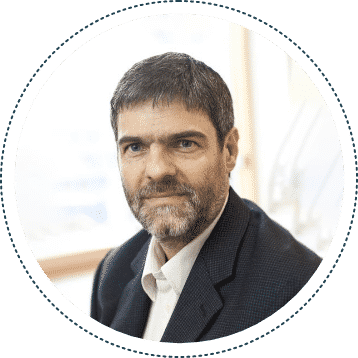Case study
Roadmapping aligns research strategy in a global manufacturing organisation
GLOBAL MANUFACTURING COMPANY
Impact
Corporate research budget realigned according to the future needs of the company
Greater harmony between business units and a change of mindset
Impact
Corporate research budget realigned according to the future needs of the company
Greater harmony between business units and a change of mindset
The challenge
While the troubleshooting and development support services provided by the central R&D function were appreciated, the lack of commercial direction for research resulted in highly promising technology-driven opportunities being missed.
Crucially, a lack of alignment existed between the short-term, cost-focused business units and the R&D portfolio of the longer-term technology-focused research team. Over time, this had led to a concern that corporate research budgets might suffer significant, possibly terminal cutbacks – just when the corporation needed to compete more effectively on the world stage.
The solution
IfM Engage introduced the organisation to the IfM’s roadmapping process. The central technology group owned the process and took part in a series of dedicated workshops, one for each business unit. Key personnel were brought together from around the Group for efficient two-day working sessions, allowing sufficient time for innovation opportunities to be explored properly. An overnight stay allowed time for social activity and networking.
In each case, three key people worked together to plan and run the workshops:
- A Senior Manager from the central research team was responsible for gaining the commitment of the business unit and for managing communication. They would also be responsible for the important implementation of outputs further into the process.
- The General Manager of the business unit was responsible for ensuring that business objectives were clearly understood and that appropriate commercial, development and managerial staff took part. Ultimately, the General Manager took ownership of the roadmaps that were generated in each workshop.
- An expert facilitator was appointed to design and coordinate the roadmapping process. For the first three business units, the facilitator was Dr Rob Phaal, Principal Research Associate at the IfM. In subsequent sessions, a company executive took on this role as the process extended to all of the twelve business units.
Using a top-down strategic planning approach, the groups considered the holistic opportunities available to the organisation, both commercial and technical. A first iteration was useful in revealing gaps in the knowledge of the organisation which could be filled as the process developed. Importantly, the scope of the whole exercise was framed at the start as being concerned with more radical innovation and its potential for future success.
Initial project
A competent research and development function, producing potentially valuable innovations, yet the benefits not being realised by the parent organisation.
Tailoring IfM tools and approaches
Each workshop produced a set of prioritised innovation opportunities and strategic options for the business. Plans were agreed how these would be taken forward, and an understanding developed of the technologies that would be needed to support these plans.
Roadmapping helped the organisation to move away from a mind-set based on low price competition, towards one that competed on innovation. The role of technology – and therefore the role of the central R&D function – in enabling next generation products became clear.
The business units and R&D function are now working in greater harmony, and the corporate research budget has been realigned according to the future needs of the company.
The impact
- The business units and R&D function are now working in greater harmony.
- The corporate research budget has been realigned according to the future needs of the company.
- The organisation changed mindsets towards one that competed on innovation.

“The benefits of Roadmapping are not well enough known. It is not widely taught on MBA programmes and needs to be better utilised at the corporate level.”
Rob Phaal

“The benefits of Roadmapping are not well enough known. It is not widely taught on MBA programmes and needs to be better utilised at the corporate level.”
Rob Phaal
About
A global manufacturing corporation with a dozen business units spread across the world.
